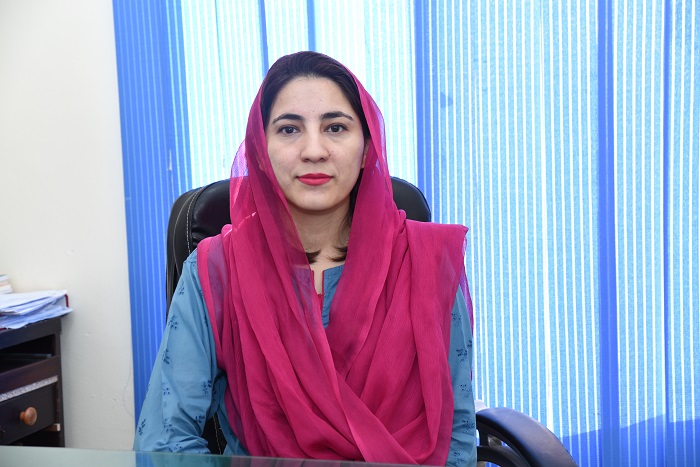Dr Zakia Batool
Assistant Professor, HEC Approved Supervisor
- PhD Economics, International Islamic University, Islamabad, 2021
- MPhil Economics and Finance, International Islamic University, Islamabad, 2014
- MSc Economics, NUML, Islamabad, 2009
- Assistant Professor, NUML, 2017 - to date
- Lecturer Economics, NUML, Islamabad, 2010 - 2017
- Shafique, S., & Batool, Z. (2015). Role of institutional quality in long-term economic growth. Journal of Research in Social Sciences, 3(2), 88.
- Bhatti, A. A., Batool, Z., & Naqvi, H. A. (2015). Fiscal policy and its role in reducing income inequality: a CGE analysis for Pakistan. Pakistan Development Review, 54(4), 843-866.
- Rani, K., & Batool, Z. (2016). Impact of Political Instability and Foreign Direct Investment on Economic Development in Pakistan. Asian Economic and Financial Review, 6(2), 83-89.
- Batool, Z. & Irfan, M. (2017). Economy-wide effects of monetary policy: An evidence from Pakistan. Journal of Economics and Management Science.
- Batool, Z., Bukhari, S., and Akbar, M. (2017). “ The Contribution of human and physical infrastructure to inclusive growth: Evidence from Pakistan”, Conference on Poverty and social inequalities in Pakistan: Inclusive growth perspective, Sargodha, May 24, 2017, HEC-thematic research grant programme.
- Batool, Z., & Zulfiqar, B. (2018). “Inclusive growth in Pakistan.” Conference on Emerging issues in the economy of Pakistan: Challenges and opportunities, August 16, 2018, School of Economics, QAU.
- Realization of food security and its viability in the face of agriculture credit and farm mechanization. National conference on Economic Development and its sustainability organized by Forman Christian College (A Chartered University), May 2nd , 2019.
- Impact of tax and transfers on income inequality and budget deficit. Journal of Social Sciences and Humanities.
- Econometrics
- Macroeconomics
- Inclusive Growth
- Development Economics
- International Finance
Education
- PhD Economics, International Islamic University, Islamabad, 2021
- MPhil Economics and Finance, International Islamic University, Islamabad, 2014
- MSc Economics, NUML, Islamabad, 2009
Experience
- Assistant Professor, NUML, 2017 - to date
- Lecturer Economics, NUML, Islamabad, 2010 - 2017
Publications
- Shafique, S., & Batool, Z. (2015). Role of institutional quality in long-term economic growth. Journal of Research in Social Sciences, 3(2), 88.
- Bhatti, A. A., Batool, Z., & Naqvi, H. A. (2015). Fiscal policy and its role in reducing income inequality: a CGE analysis for Pakistan. Pakistan Development Review, 54(4), 843-866.
- Rani, K., & Batool, Z. (2016). Impact of Political Instability and Foreign Direct Investment on Economic Development in Pakistan. Asian Economic and Financial Review, 6(2), 83-89.
- Batool, Z. & Irfan, M. (2017). Economy-wide effects of monetary policy: An evidence from Pakistan. Journal of Economics and Management Science.
- Batool, Z., Bukhari, S., and Akbar, M. (2017). “ The Contribution of human and physical infrastructure to inclusive growth: Evidence from Pakistan”, Conference on Poverty and social inequalities in Pakistan: Inclusive growth perspective, Sargodha, May 24, 2017, HEC-thematic research grant programme.
- Batool, Z., & Zulfiqar, B. (2018). “Inclusive growth in Pakistan.” Conference on Emerging issues in the economy of Pakistan: Challenges and opportunities, August 16, 2018, School of Economics, QAU.
- Realization of food security and its viability in the face of agriculture credit and farm mechanization. National conference on Economic Development and its sustainability organized by Forman Christian College (A Chartered University), May 2nd , 2019.
- Impact of tax and transfers on income inequality and budget deficit. Journal of Social Sciences and Humanities.
Interests
- Econometrics
- Macroeconomics
- Inclusive Growth
- Development Economics
- International Finance
